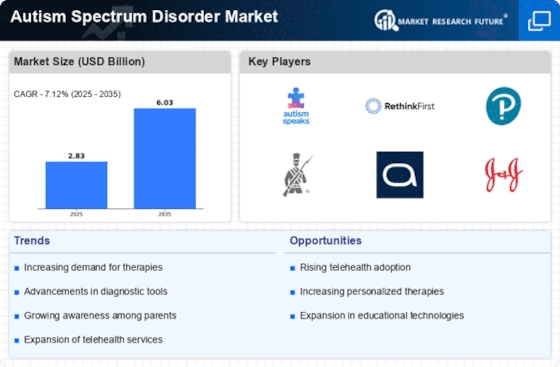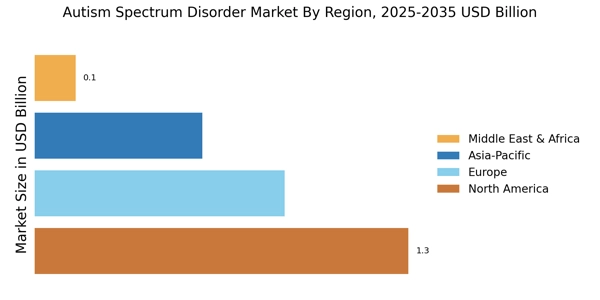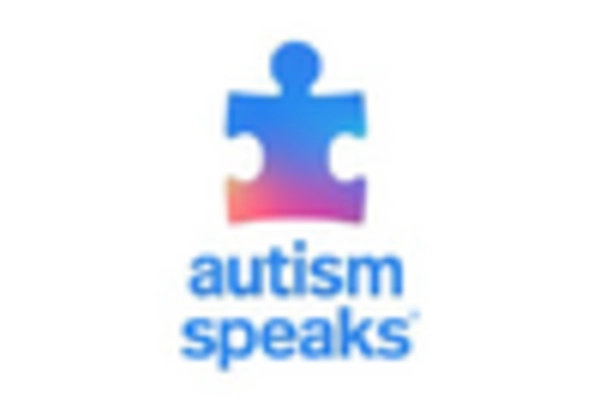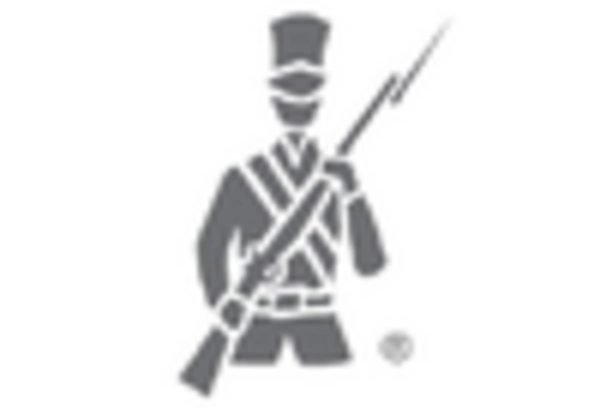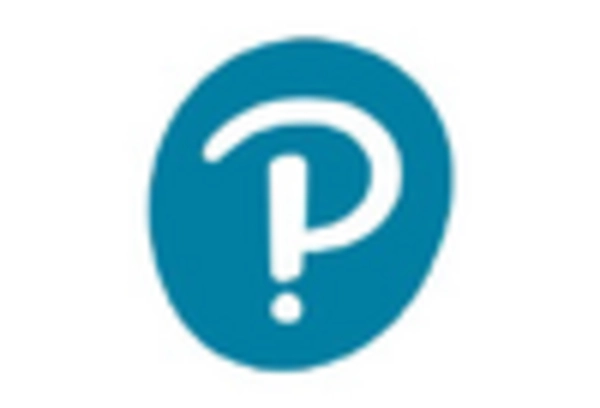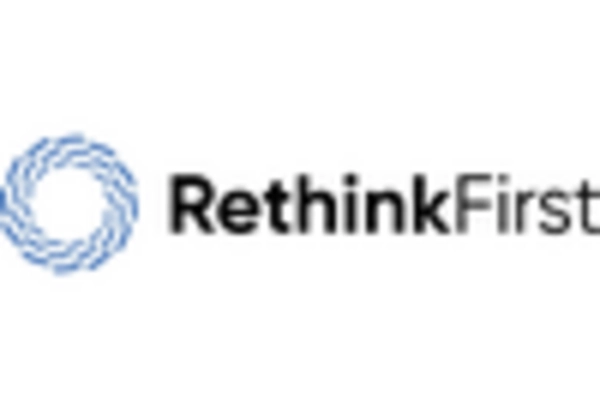Advancements in Diagnostic Techniques
Advancements in diagnostic techniques significantly influence the Autism Spectrum Disorder Market. Enhanced screening methods, such as genetic testing and neuroimaging, allow for earlier and more accurate diagnoses of ASD. These innovations not only facilitate timely intervention but also increase the overall demand for diagnostic services and related products. The market for diagnostic tools is projected to grow as healthcare providers adopt these advanced methodologies. Furthermore, the integration of artificial intelligence in diagnostic processes may streamline assessments, making them more efficient and accessible. As a result, the Autism Spectrum Disorder Market is likely to experience a surge in investment and development of new diagnostic technologies, ultimately benefiting individuals with ASD and their families.
Rising Prevalence of Autism Spectrum Disorder
The increasing prevalence of Autism Spectrum Disorder Market (ASD) is a primary driver of the Autism Spectrum Disorder Market. Recent estimates indicate that approximately 1 in 44 children are diagnosed with ASD, reflecting a notable rise in cases over the past decade. This surge in prevalence necessitates enhanced diagnostic tools and therapeutic interventions, thereby expanding the market for ASD-related products and services. As awareness grows, more families seek early diagnosis and intervention, which further propels demand within the Autism Spectrum Disorder Market. The need for specialized educational resources and support services also contributes to market growth, as parents and caregivers look for effective solutions to assist individuals with ASD in navigating daily challenges.
Increased Funding for Research and Development
Increased funding for research and development in the field of Autism Spectrum Disorder Market is a crucial driver of the Autism Spectrum Disorder Market. Governments and private organizations are allocating substantial resources to understand the complexities of ASD, leading to the development of innovative therapies and interventions. For instance, funding initiatives have supported studies on the genetic and environmental factors contributing to ASD, which may pave the way for targeted treatments. The market for therapeutic solutions is expected to expand as new findings emerge, and effective interventions are developed. This influx of funding not only enhances the quality of care available but also stimulates growth within the Autism Spectrum Disorder Market, as stakeholders seek to capitalize on new research outcomes.
Technological Innovations in Therapeutic Solutions
Technological innovations in therapeutic solutions are reshaping the Autism Spectrum Disorder Market. The integration of digital platforms, mobile applications, and telehealth services has revolutionized the way therapies are delivered to individuals with ASD. These technologies facilitate remote access to therapeutic interventions, making them more convenient and accessible for families. Moreover, the use of virtual reality and gamification in therapy sessions has shown promise in enhancing engagement and effectiveness. As these technological advancements continue to evolve, they are expected to drive market growth by attracting a broader audience seeking innovative solutions for ASD. The Autism Spectrum Disorder Market is poised to benefit from these developments, as they offer new avenues for treatment and support.
Growing Demand for Educational and Support Services
The growing demand for educational and support services tailored to individuals with Autism Spectrum Disorder Market is a significant driver of the Autism Spectrum Disorder Market. As awareness of ASD increases, parents and educators are actively seeking specialized programs that cater to the unique needs of children with autism. This trend has led to the establishment of numerous educational institutions and support networks focused on providing effective learning environments. The market for training programs, workshops, and resources aimed at educators and caregivers is also expanding, reflecting the need for comprehensive support systems. Consequently, the Autism Spectrum Disorder Market is likely to witness sustained growth as more stakeholders recognize the importance of inclusive education and support for individuals with ASD.


